-
 chevron_right
chevron_right
Porsche réveille le mythe : une nouvelle 911 arrivera en 2025, elle sera hybride !
news.movim.eu / JournalDuGeek · Wednesday, 29 May - 09:34
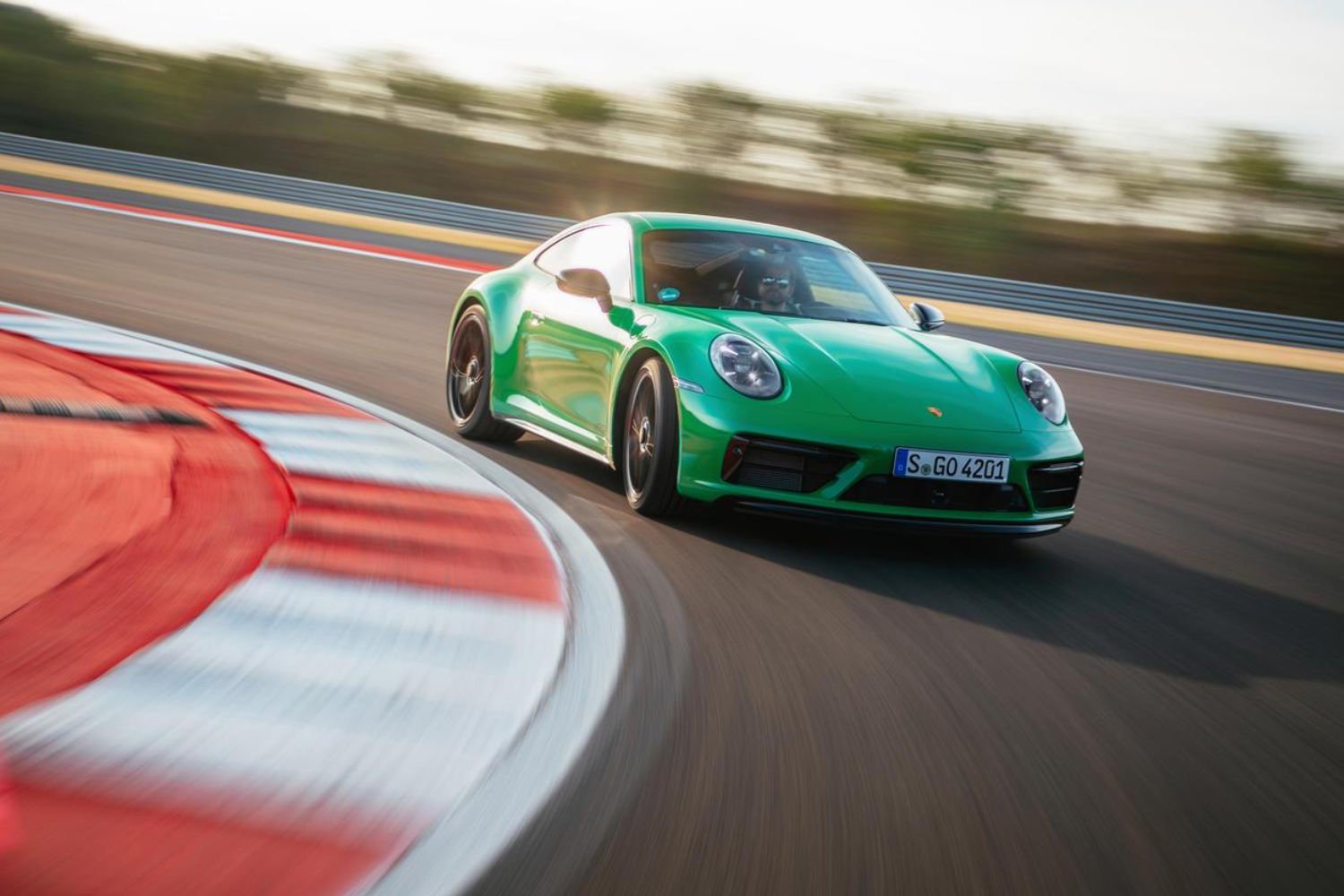
 chevron_right
chevron_right
Porsche réveille le mythe : une nouvelle 911 arrivera en 2025, elle sera hybride !
news.movim.eu / JournalDuGeek · Wednesday, 29 May - 09:34

 chevron_right
chevron_right
Honor et Porsche passent la seconde avec un nouveau smartphone très haut de gamme
news.movim.eu / JournalDuGeek · Thursday, 9 May - 15:12
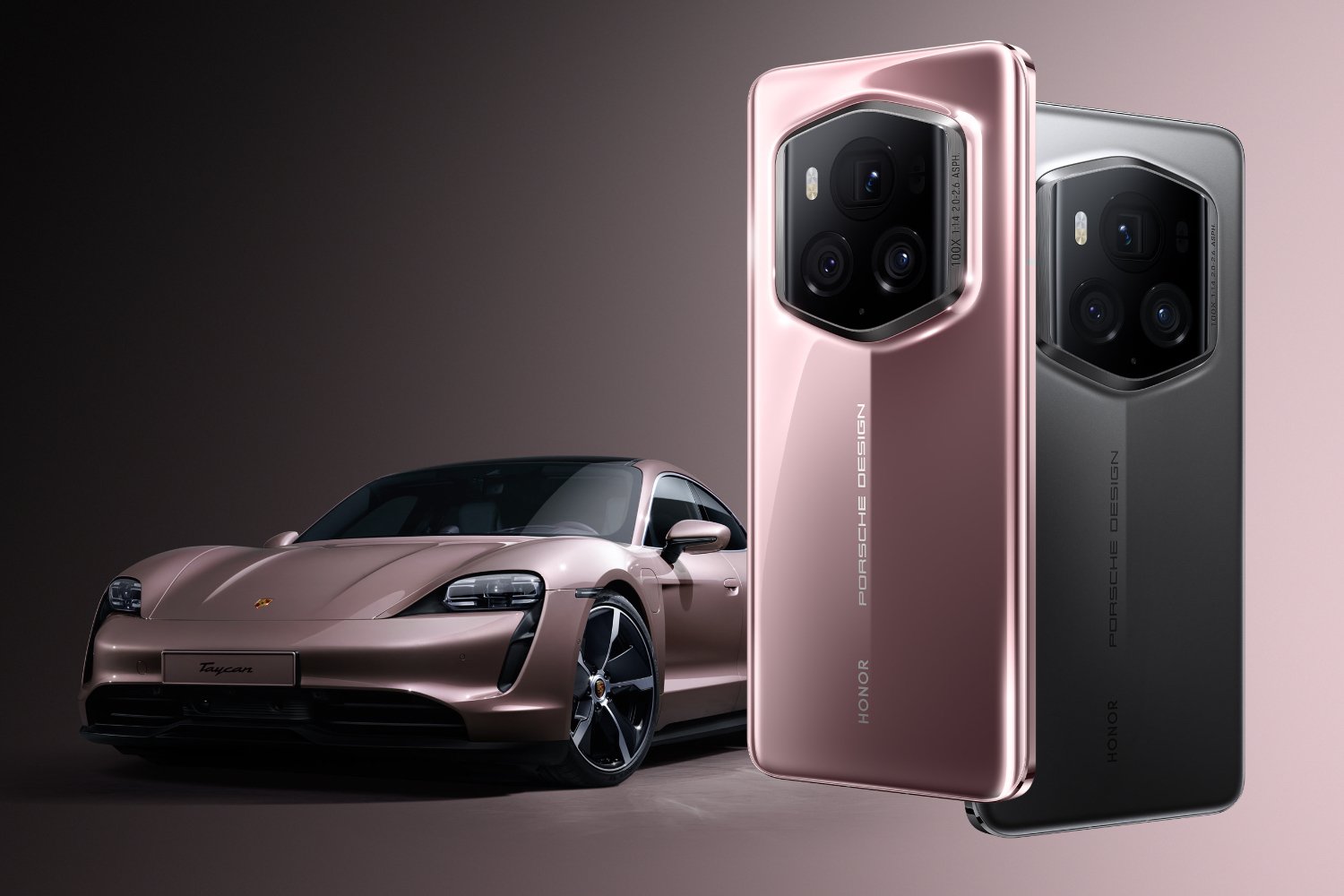
 chevron_right
chevron_right
Des voitures électriques Porsche, Audi et Jaguar sont rappelées à cause d’un risque d’incendie
news.movim.eu / Numerama · Tuesday, 30 April - 09:20
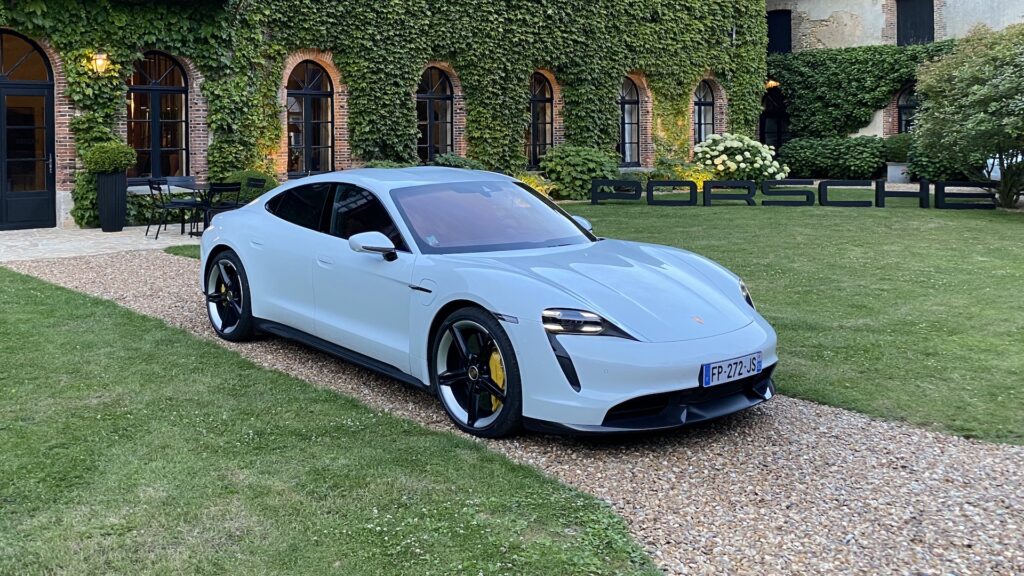
Le site Rappel Conso a annoncé des procédures de rappel sur plusieurs voitures électriques. En cause : la batterie haute tension qui pourrait prendre feu dans certaines circonstances.
 chevron_right
chevron_right
The 2024 Porsche Macan EV has character, pace, and the right badge
news.movim.eu / ArsTechnica · Tuesday, 23 April - 12:00 · 1 minute
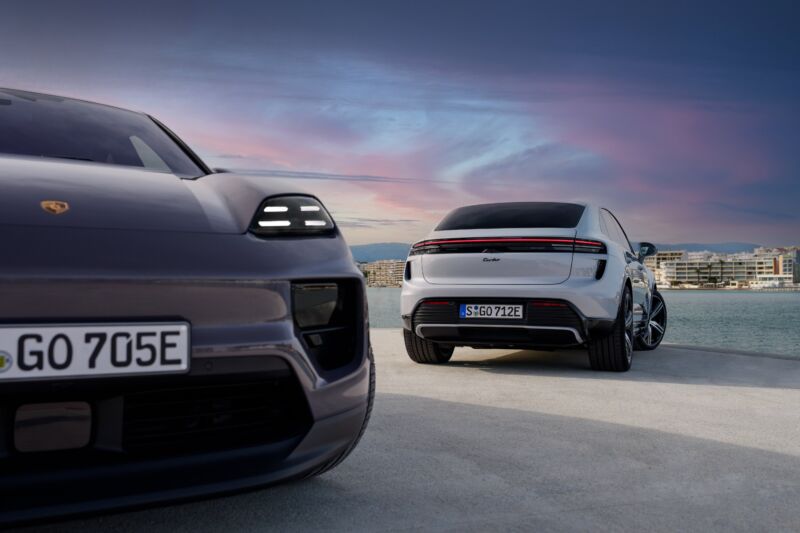
Enlarge / The third-generation Porsche Macan drops the internal combustion engine—this one is only available as a battery electric vehicle. (credit: Porsche)
Porsche provided flights from London to Nice and accommodation so Ars could drive the Macan. Ars does not accept paid editorial content.Porsche's Taycan has been a nice electric vehicle for the German brand, and the recently updated model is supposed to offer more of the good stuff and less of the bad. The sedan is on the expensive side, and it doesn't scream "family lugger," which is where the new electric Macan comes in. Porsche's volume-selling entry-level SUV is now electric, and it might be just the car to convince skeptics and non-Porsche people alike that EV is the way to go. Maybe.
At launch, you'll be able to pick up a Macan 4 or Macan Turbo. Peak power sits at 402 hp (300 k) and 630 hp (470 kW) respectively, but that's just when you use the car's overboost. Most of the time, you'll have to make do with an adequate 382 hp (285 kW) and 576 hp (430 kW). Torque for both is a healthy 479 lb-ft (650 Nm) and 833 lb-ft (1,130 Nm). With all that grunt on board, Porsche reckons you'll be able to hit 62 mph from rest in 4.9 and 3.1 seconds, respectively (0–100 km/h takes 5.2 and 3.3 seconds, respectively), as well as topping out at 137 mph (220 km/h) and 162 mph (260 km/h). Not having a gas motor under the hood isn't a penalty when it comes to performance.
The electric Macan sits on the all-new PPE (Premium Platform Electric) architecture. Shared with Audi and its upcoming Q6 e-tron , PPE was built with electricity in mind. Its party piece is a hefty 100 kWh battery (95 kWh usable) that sits under the cabin, giving the Macan 4 381 miles (613 km) of range and the Turbo 367 miles (590 km), although that's according to the less-accurate WLTP testing scheme used in Europe—EPA range estimates will be available closer to the Macan's arrival in the US in the second half of this year.
 chevron_right
chevron_right
Porsche annonce une nouvelle version de la Taycan, la plus rapide de toutes
news.movim.eu / JournalDuGeek · Thursday, 8 February - 07:30
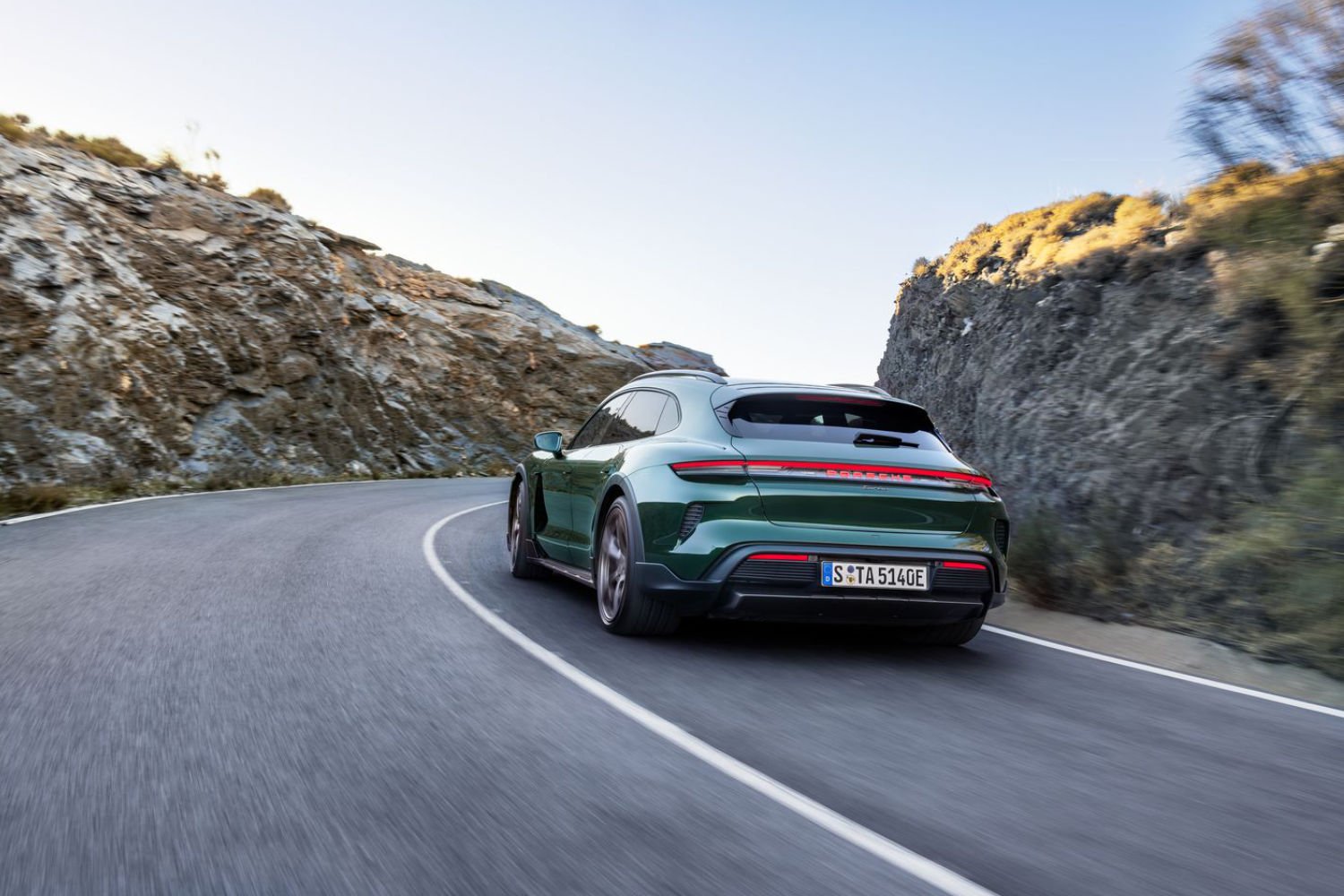
 chevron_right
chevron_right
Here’s the production version of Porsche’s first electric Macan SUV
news.movim.eu / ArsTechnica · Thursday, 25 January, 2024 - 12:30 · 1 minute
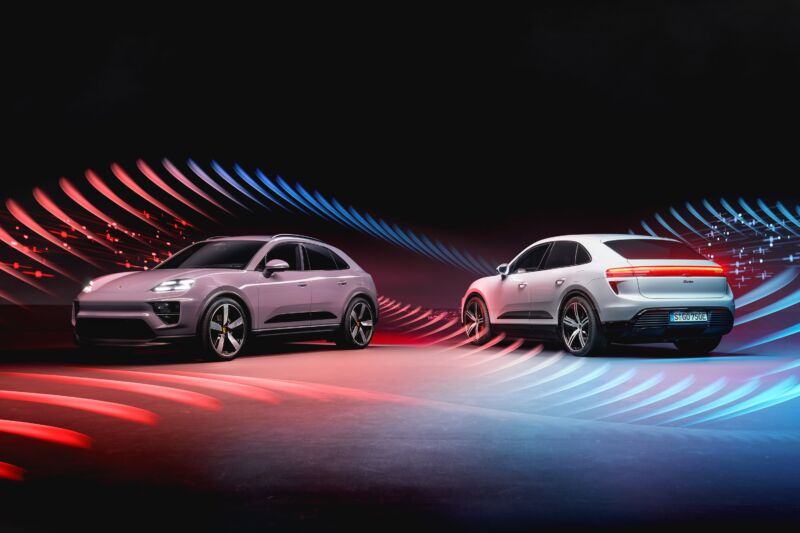
Enlarge / On the left, the 2024 Porsche Macan 4, on the right, the 2024 Porsche Macan Turbo. Both are electric. (credit: Porsche)
This morning, Porsche unveiled its next Macan SUV. It has dropped internal combustion engines in the process—the new Macan is entirely battery electric, built on a dedicated EV platform. We've been following the car's development for some time, but today's news fills in a lot of the gaps, and it's the first time we've seen the Macan not covered in camouflage. Porsche is launching with two specifications. There's a Macan 4 that starts at $78,800, and a Macan Turbo starting at $105,300.
Last year Ars took a dive into the engineering that has gone into the new Macan and its underlying architecture, a new platform called PPE or Premium Platform Electric. Developed together with Audi, it uses an 800 V powertrain that's an incremental improvement upon the one you'd find in a Porsche Taycan.
We also already know it's fun to drive , especially the Macan Turbo. Rear-wheel steering makes it very nimble, and the two-valve dampers do a good job of making you think the car weighs less than it does. The Macan 4 isn't a slouch and can send up to 402 hp (300 kW) and 479 lb-ft (650 Nm) to its wheels, so launching up a highway on-ramp to 60 mph should take 4.9 seconds.
 chevron_right
chevron_right
Le nouvel Apple CarPlay sera d’abord disponible dans des voitures hors de prix
news.movim.eu / Numerama · Thursday, 21 December, 2023 - 10:29
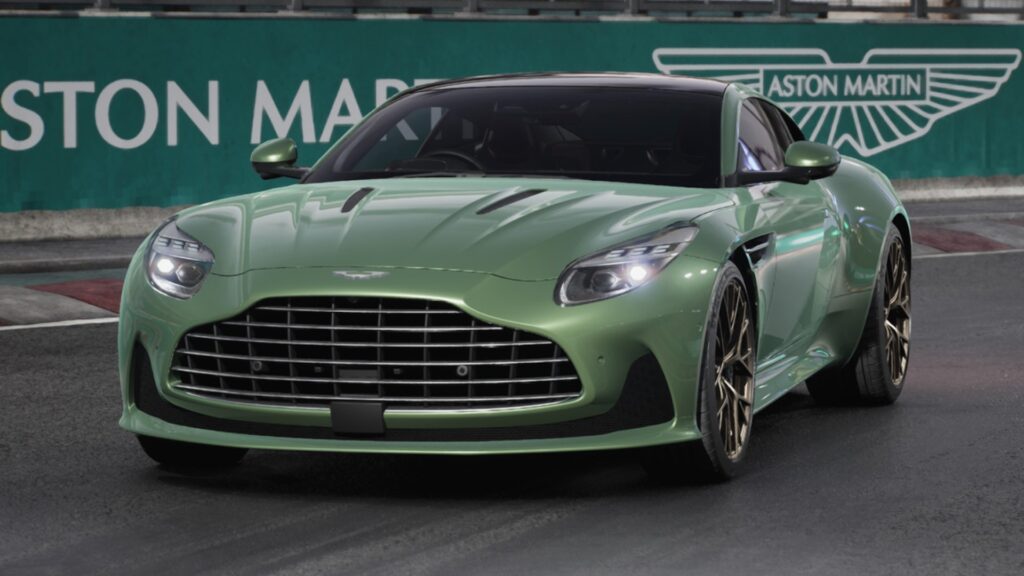
Le déploiement d'Apple CarPlay 2.0 va commencer, d'abord chez Porsche et Aston Martin. Dans les deux cas, l'interface fait vraiment rêver.
 chevron_right
chevron_right
Porsche gives Ars a look inside its next EV: the all-electric Macan
news.movim.eu / ArsTechnica · Monday, 11 December, 2023 - 23:01 · 1 minute
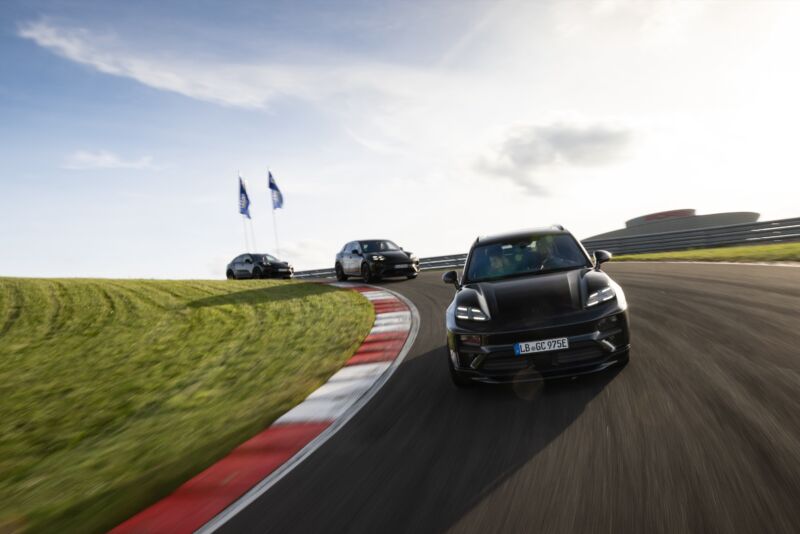
Enlarge / Porsche's all-electric Macan is almost on sale. (credit: Porsche)
Porsche provided flights from Washington to Leipzig and accommodation so we could visit the Porsche factory and learn about the new Macan, as well as try out the new Panamera . Ars does not accept paid editorial content.LEIPZIG, Germany—The Porsche Macan has carved out a rather solid reputation for itself over the years, bringing hot hatch-like driving fun to the premium midsize crossover segment. Next year there's an all-new Macan, an entirely electric one that makes use of a new EV platform shared with corporate sibling Audi. Earlier this summer we spent a few hours driving prototype Macan EVs around Los Angeles , but at the time Porsche was being tight-lipped in terms of technical details. Now, on a visit to the factory in Germany where the cars will be made, we've learned a little more.
The new Macan is one of the first EVs to utilize Premium Platform Electric, which Porsche is developing together with Audi . Other PPE-based EVs due in the near future include the Audi Q6 e-tron SUV, A6 e-tron sedan , and maybe even a station wagon , and if you click some of those links you'll find deadlines that have come and gone sometime in the past.
That's because development of PPE hasn't gone quite as smoothly as everyone at Volkswagen Group would have hoped. A significant factor in that has been software-related trouble at CARIAD, VW Group's new software division . But the first PPE cars are headed to market soon, and in the case of the Macan, with more than 1.8 million miles (3 million km) of testing under its tires.
 chevron_right
chevron_right
The return of GTP racing to IMSA gets a big thumbs-up from fans
news.movim.eu / ArsTechnica · Tuesday, 21 November, 2023 - 12:00 · 1 minute
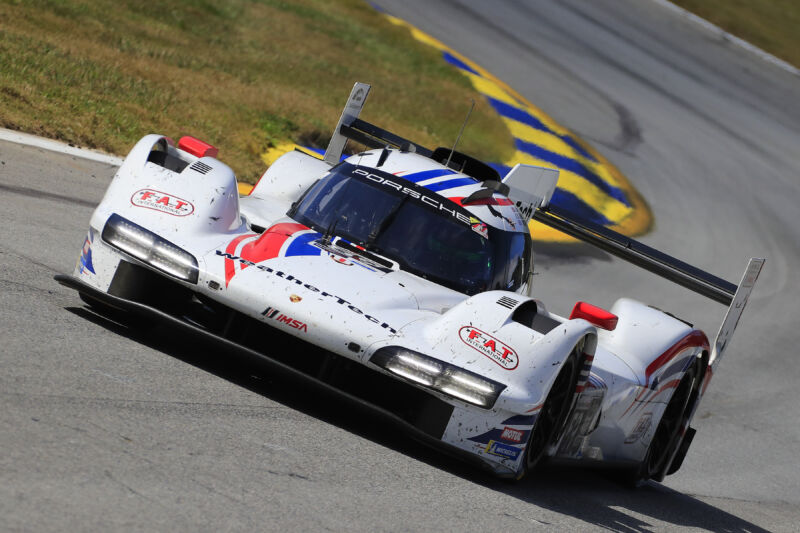
Enlarge / A Porsche 963, one of the four different kinds of hybrid prototype racing cars built to the LMDh rules, running in IMSA's GTP class at the 2023 Petit Le Mans at Road Atlanta in October. (credit: David J. Griffin/Icon Sportswire via Getty Images)
IMSA provided flights from Washington, DC, to Atlanta and four nights in a hotel so we could attend Petit Le Mans. Ars does not accept paid editorial content.The crowd streamed onto the track before the race, seizing their last chance to see the brightly liveried cars up close. Daytona had been busy in January, but the crowd at Road Atlanta seemed even larger. To be honest, though, the race the fans were here to see would not be one for the ages. A 52-car grid packed into just 2.8 miles of race track promised potential trouble, and the 10-hour race saw 14 interruptions by the safety car, never getting into a rhythm. But I’m not sure that mattered much; the main draw for many in attendance that Saturday was simply seeing this new era of hybrid prototypes in person, and on that score, everyone left with smiles.
We’ve spilled plenty of pixels over the past 18 months or so delving into some of the minutiae of this new class of racing car, variously known as LMDh or GTP . Briefly, these are purpose-built racing cars, which start with a carbon-fiber spine from one of four racecar constructors and then add an engine, bodywork, and software from one of the four OEMs that participate, and then the same Xtrac gearbox, Williams Advanced Engineering lithium-ion battery, and Bosch electric motor as a way to keep development costs reasonable.
The rules purposely limit the amount of aerodynamic downforce a car can generate relative to the amount of drag it creates, and they positively encourage each car maker to give these race cars styling that calls out to their road-going products.